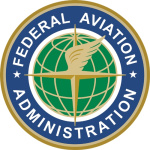- Industrie: Government
- Number of terms: 35337
- Number of blossaries: 0
- Company Profile:
A frontal occlusion occurs when a fast-moving cold front catches up with a slow moving warm front. The difference in temperature within each frontal system is a major factor in determining whether a cold or warm front occlusion occurs.
Industry:Aviation
A sudden, drastic shift in windspeed, direction, or both that may occur in the horizontal or vertical plane.
Industry:Aviation
A personal motivational predisposition to respond to persons, situations, or events in a given manner that can, nevertheless, be changed or modified through training as sort of a mental shortcut to decision-making.
Industry:Aviation
High lift devices which are found on the leading edge of the airfoil. The most common types are fixed slots, movable slats, and leading edge flaps.
Industry:Aviation
Omnidirectional lights that outline the edges of the taxiway and are blue in color.
Industry:Aviation
An ATC clearance issued to allow a pilot to conduct flight at any altitude from the minimum IFR altitude up to and including the altitude specified in the clearance. Also authorizes a pilot to proceed to and make an approach at the destination airport.
Industry:Aviation
The failure to anticipate significant instrument indications following attitude changes; for example, concentrating on pitch control while forgetting about heading or roll information, resulting in erratic control of heading and bank.
Industry:Aviation
A twice daily forecast that provides wind and temperature forecasts for specific locations in the contiguous united states.
Industry:Aviation
A system composed of three-axis sensors that provide heading, attitude, and yaw information for aircraft. AHRS are designed to replace traditional mechanical gyroscopic flight instruments and provide superior reliability and accuracy.
Industry:Aviation
A portion of the leading edge of an airplane wing that folds downward to increase the camber, lift, and drag of the wing. The leading-edge flaps are extended for takeoffs and landings to increase the amount of aerodynamic lift that is produced at any given airspeed.
Industry:Aviation
